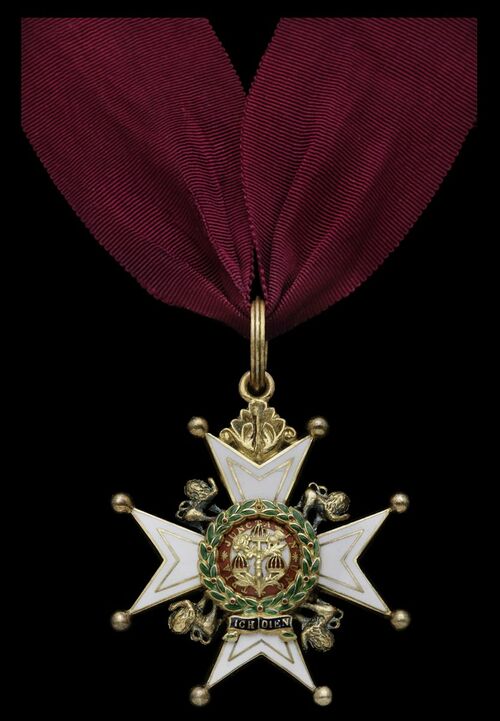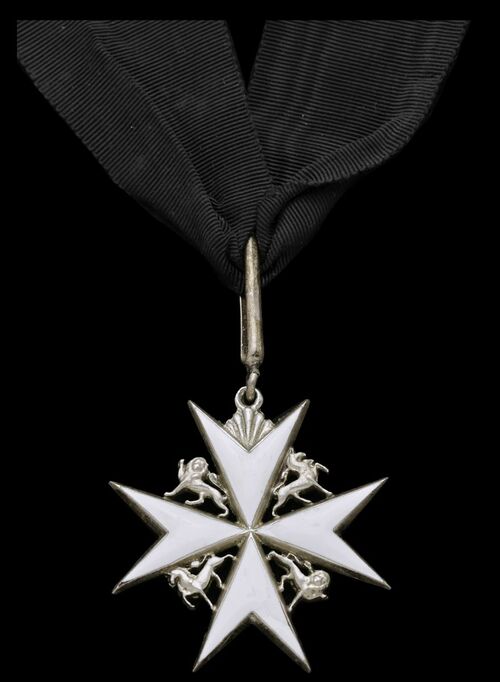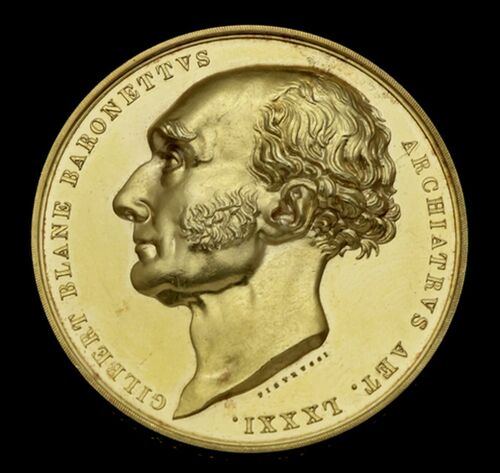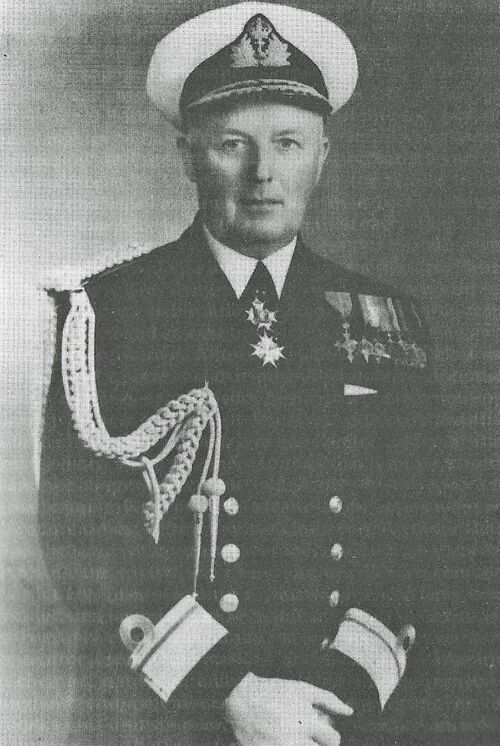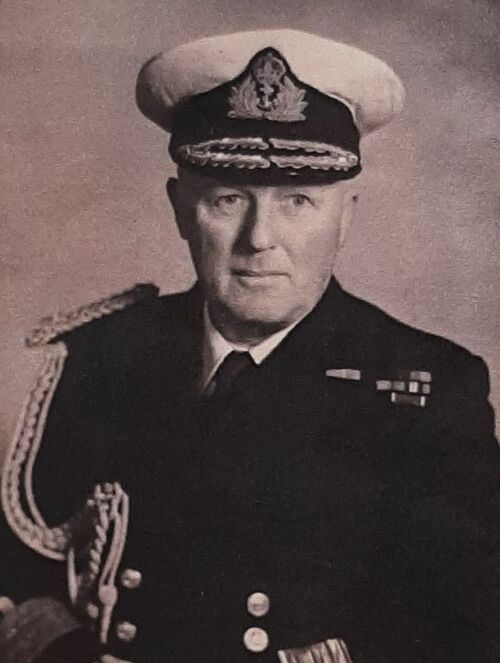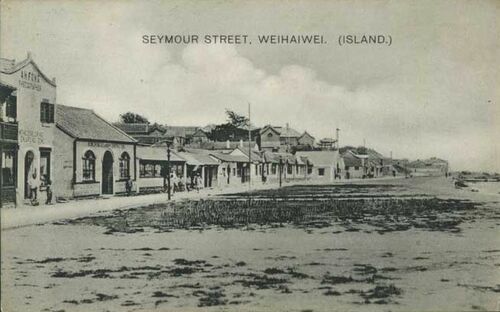Auction: 23001 - Orders, Decorations and Medals
Lot: 327
'He was also Medical Officer in Charge of the RN Sick Quarters at Wei-Hai-Wei in 1940 and, when the Japanese sent a deputation to occupy the place, Arnold received them in frock coat and sword and advised them to depart, which they duly did.'
His obituary by Surgeon Rear-Admiral D. P. Gurd, refers
The 1957 C.B. and 1941 O.B.E. group of nine awarded to Surgeon Rear-Admiral A. A. Pomfret, Royal Navy, who was awarded the Gilbert Medal in 1935 and later became the last Naval Commander of the Wei-Hai-Wei concession, defying the Japanese attempts to intimidate them into a withdrawal in the tense build-up to the Second World War
The Most Honourable Order of the Bath, Military Division, Companion's (C.B.) neck Badge, silver-gilt and enamel; The Most Excellent Order of the British Empire, Military Division, 2nd Type Officer's (O.B.E.) breast Badge, silver-gilt; The Most Venerable Order of St. John of Jerusalem, Commander's neck Badge, silvered and enamel; 1939-45 Star; Atlantic Star; Defence and War Medals 1939-45; Coronation 1953; Gilbert Blane Gold Medal (Surg. Lieut. Commdr. Arnold Ashworth Pomfret, M.B., Ch. B., D.O.M.S., R.N. Promotion Exam, 1935.), the O.B.E. and campaign awards mounted as worn, the mounting bar engraved to the reverse 'Surg. Capt. A. A. Pomfret. O.B.E. R.N.', minor enamel damage to third, otherwise good very fine (9)
C.B. London Gazette 13 June 1957.
O.B.E. London Gazette 1 January 1941.
Arnold Ashworth Pomfret was born on 1 June 1900, the son of John and Eleanor Pomfret and educated at Manchester University where he participated in a number of sport events, winning medals for both high jump and long jump. His postgraduate education occurred at London, Cape Town and after that Oxford. Commissioned Surgeon Lieutenant on 22 August 1922 he was posted to the destroyer H.M.S. Malcom that same year. Serving with her for four years he later joined the survey vessel Endeavour in 1926. Promoted Surgeon Lieutenant-Commander on 13 August 1929 he served in this rank with the Naval Hospital Cape of Good Hope from 1931.
Promoted Surgeon Commander on 13 August 1934 Pomfret moved on to the Royal Naval Hospital Haslar in 1935. It was at this time that he won the Gilbert Blane medal for his examination taken that year. Pomfret's first major posting was as Medical Officer in Command of the Royal Naval Sick Quarters at Wei-Hai-Wei in 1937. His wife Caroline describes the role in her autobiographical work Cabin Trunks & Far Horizons:
'The appointment of Medical Officer in Charge, R.N. Sick Quarters, Wei-Hai-Wei, was held by a Surgeon Commander who was always a general surgeon. When the Fleet was absent he wore another hat, unique for a Medical Officer, that of Resident Naval Officer. When the Fleet arrived in April, a medical "mate" came up from HMS Tamar, backed by a full compliment of Sick Berth Staff, and RNSQ was open for business. The climate was so good and the open-air life so healthy that the health of the Fleet was generally excellent. But if there was any mild epidemic, the Medical Officers and Sick Berth Staff from the Fleet backed up. Sometime an extra specialist was available. For example, in my time the PMO of HMS Medway was an ENT Specialist.
It will thus be seen that during the summer months the MOIC had an interesting life of full professional endeavour. But when the Fleet left in October he became the leisured laird of this wonderful little island, with golf, shooting and fishing all laid on. His winter solitude was shared by a Naval Store Officer (also married) and a Sick Berth Petty Officer. I had a feeling that almost every young Medical Officer said to himself, "Someday I must become MOIC, Wei-Hai-Wei!" (I know I did).'
This idyllic life was set to change however as the Japanese had set their sights upon the concession. Technically the island was leased by the British and therefore was Chinese property and - as they were at war with China - the Japanese felt vindicated in seizing it. Leading to the odd situation of the island being captured but the lease remaining, a position neither side found to their liking. As they were not at war with Britain the Japanese could not openly attack so instead, they resorted to intimidation, even going to far as remove all the British flags under cover of night. They also targeted any Chinese citizens who were employed by the British, knowing that this tactic would cause anger amongst the local population. Japanese Officers often arrived to call upon Pomfret - as was required by diplomatic etiquette - though they rarely observed any level of politeness themselves:
'The Japanese Captain came to call on Grandpa at the house complete with a troop of fully armed body guards. When he was invited in, this gang tried to follow on behind. "Stop!", said Grandpa, "I'm not having that lot in my drawing room!", making them wait outside the front door. When I came back from playing golf, we found this lot sitting on the steps.'
However things continued to grow worse, Pomfret even asked the Japanese Commander - presumably unofficially - what would happen to him and his family war occur. He was told that he would be shot and his family interned in Shanghai camp, it was perhaps at this point that he decided to give medical supplies to the Chinese guerrillas. Told bluntly to leave Pomfret replied that he took his orders from the Admiralty and wouldn't be moved. The situation however was untenable and he was finally allowed to leave, with the family travelled first to Shanghai and thence to Canada.
From here they passed through a number of positions, Bermuda, Jamaica and finally back to Britain where Pomfret underwent an operation to remove a cancerous tumour on his lower lip. As a habitual smoker he was to suffer from health-related issues for the rest of his life. While in London he served as Assistant to the Medical Director General, a position which he held despite his forthright nature which occasionally created what his friend Surgeon Rear Admiral Gurd called 'very forcible' exchanges.
Promoted Surgeon Captain in 1944, he was posted back to the cape as Medical Officer in Command of the Royal Naval Hospital at Simonstown in 1946. After a stint of two years, he was moved on to the same role at the Royal Naval Hospital Portland and finally to Bermuda. Returning to Britain he became Surgeon Rear Admiral at Plymouth in 1954, also accepting the role of Queen's Honorary Surgeon during the same period. Pomfret died on 3 April 1984; sold together with a copy of Cabin Trunks & Far Horizons, four sporting medals, two named to the recipient and all in their boxes or cases of issue with a case of issue for the O.B.E. and box of issue for the coronation medal along with copied research comprising, research on the Gilbert Blane medal, two London Gazette entries, a typed service history and two obituaries.
For the recipient's miniature dress medals, please see Lot 471.
Subject to 20% VAT on Buyer’s Premium. For more information please view Terms and Conditions for Buyers.
Sold for
£2,400
Starting price
£1400

